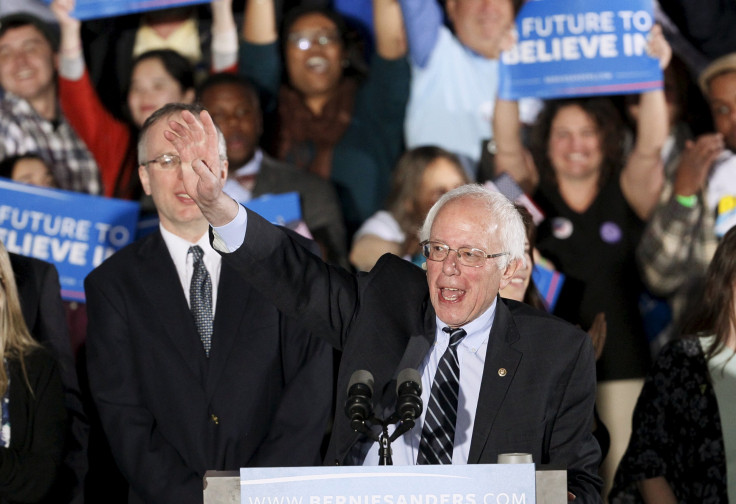What Are Superdelegates? How Bernie Sanders' New Hampshire Primary Win Is Still A Loss To Hillary Clinton

Although Vermont Sen. Bernie Sanders had the second-biggest Democratic primary win of all time over former Secretary of State Hillary Clinton in New Hampshire Tuesday, don’t be fooled into thinking he actually won. He may have won the primary vote — 60.2 percent of the vote to Clinton’s 38.2 percent — but the former secretary of state is still walking away with two more delegates than her former senate colleague.
Clinton was able stage that coup in New Hampshire through a confusing and little-known superdelegate system, in which established Democratic Party leaders are allowed to choose whomever they want to vote for — with no one to answer to for their vote and with no concern for how voters in their states cast their ballots. It’s the reason why Clinton beat Sanders in New Hampshire despite receiving less votes, and it’s the reason why she currently has 394 total delegates to Sanders’s 42 in a nominating season where just two states with a total of 68 delegates between them have voted so far.
Clinton gets crushed in NH, but DNC super delegate system means she has won more NH delegates #democracy pic.twitter.com/Av88pLbDVC
— David Sirota (@davidsirota) February 10, 2016
First, it’s worth explaining the delegate system. Just like in the general election, voters in the primary don’t actually cast ballots for the candidates themselves. Instead, they cast ballots for people to represent them (and their views) at the party’s national convention after all the primaries and caucuses are held in the country. The majority of the total 4,763 total delegates available are bound to vote for the candidate who voters choose, but 712 members get to do whatever they want.
That 712-member subset isn't random. It includes the likes of former presidents (you can probably guess who Bill Clinton supports), governors and members of Congress (you can probably guess who Sanders supports). Former governors and congressmen are also in that equation, as are high-level party officials.
The purpose of these superdelegates isn’t necessarily to throw a cog in democracy, although Sanders supporters might argue differently. Because parties encompass more than just a presidential candidate, there is a vested interest in having some amount of control over who becomes the party’s nominee.
There are several concerns: Nominees become the standard bearer of their respective parties and affect down-ballot candidates and, generally speaking, leaders within the party tend to know who is electable. After all, Bill Clinton did win the presidency twice and is frequently used as a surrogate for congressional candidates.
There's a reason why Sanders isn't getting the level of support Clinton is from Democratic Party leaders. While she has been a Democrat for decades, the same is not true for Sanders, who only caucuses with Democrats in the Senate. In fact, his Senate biography boasts that he is the "longest-serving independent member of Congress." In case you missed this: Being independent is kind of his brand.
That all may sound bad for Sanders, and it likely is, but it's important to remember that superdelegates make up just 20 percent or so of the total delegate count. Clinton could win the support of the remaining superdelegates, and at this point, the race could still be competitive. At the same time, comparisons to 2008 — when Clinton also led the pack with early superdelegates but was beat by a similarly insurgent opponent — should be eyed with suspicion. Back then, Clinton held just more than 50 percent of the early superdelegate count, ahead of then-Sen. Barack Obama, who had 63. This time around, Sanders trails far behind, with less than 15 superdelegates, making the odds stacked a little steeper against Sanders than they were for Obama.
© Copyright IBTimes 2025. All rights reserved.






















